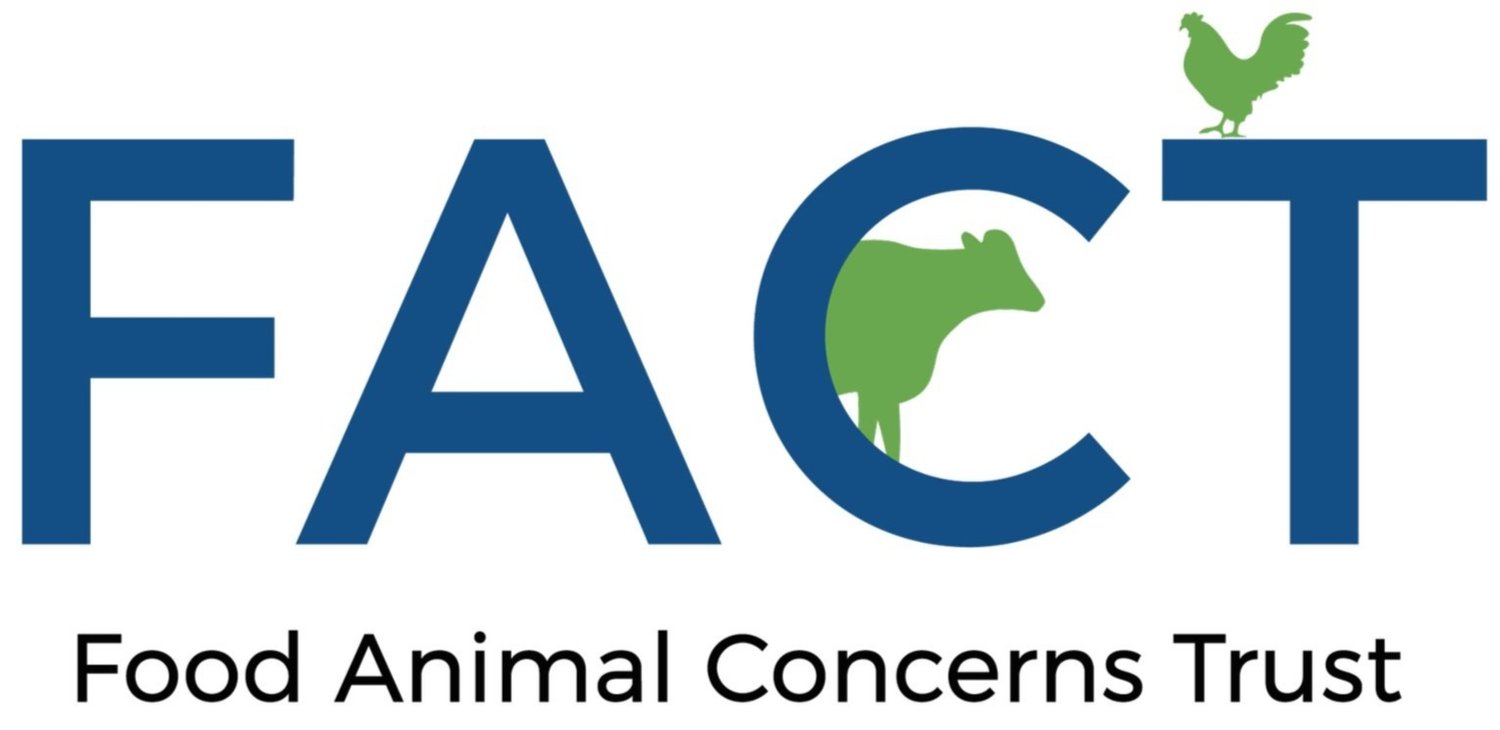How to be a Conscientious Eater this Fall
By Harry Rhodes, Executive Director
Turkey chicks at Bull City Farm in North Carolina
As we head into the fall and winter I find myself thinking of the many holidays that occur during this period and the different food traditions associated with those holidays. Traditionally many people had close ties to the land and have expressed gratitude for the food that the land produces. Part of that connection is raising animals for food outdoors, in their natural setting. Most people who raise these animals truly care for them, and express thanks for the food we get from them.
In many Indigenous cultures, animals such as American buffalo and salmon are considered relatives who are respected for the food they provide. Native societies often are focused on maintaining relationships with the land and the plants and animals that live on it. I would like to take a look at more of these food traditions as we approach different holidays.
We at FACT know that you care about farmers and food-producing animals. So do we! This is why this fall we are asking you to support our efforts to make sure our food is safe, healthy, and raised humanely by making a donation today!
The wild turkey (Meleagris gallopavo), the ancestor of all domestic breeds of turkey, is indigenous to North America. While this humble bird might be a North American native, its domesticated brethren are enjoyed across the world as the centerpiece of many holiday festivals.
Cows grazing in the fall at Sparkplug farm in Maine.
Most turkeys today are raised inhumanely on giant turkey factories. We at FACT have put together a Pasture-Raised Turkey Directory. This directory helps you to find a humanely raised turkey for your celebration.
There are many cultures with different holiday food traditions. In addition to turkey, some meat that I’m familiar with are lamb, brisket, ham, and many more. All of these traditions focus on being conscientious eaters and having appreciation and respect for nature and the food that we eat. FACT’s For Consumers section of our website includes information on “What is a Humane Farm,” as well as where you can find humanely raised meat, dairy, poultry, and eggs.
Our core values are at the heart of who we are at FACT and can be found here. The first two relate directly to our approach to the food we eat:
Compassion: FACT is guided by compassion for farm animals, whose suffering can only be alleviated by the end of factory farming and all inhumane farming practices.
Respect: FACT respects and promotes the health and well-being of farm animals, human beings, and the environment.
When you sit down to eat with your family and friends at your holiday meal, think about where your food came from. Take a moment to give thanks for the land and for the animals.
We are happy to share all of this information about humane farms and where to find humanely raised food. Help us to continue to make this information available by making a gift of $42, $110, $275, or an amount meaningful to you, today.


